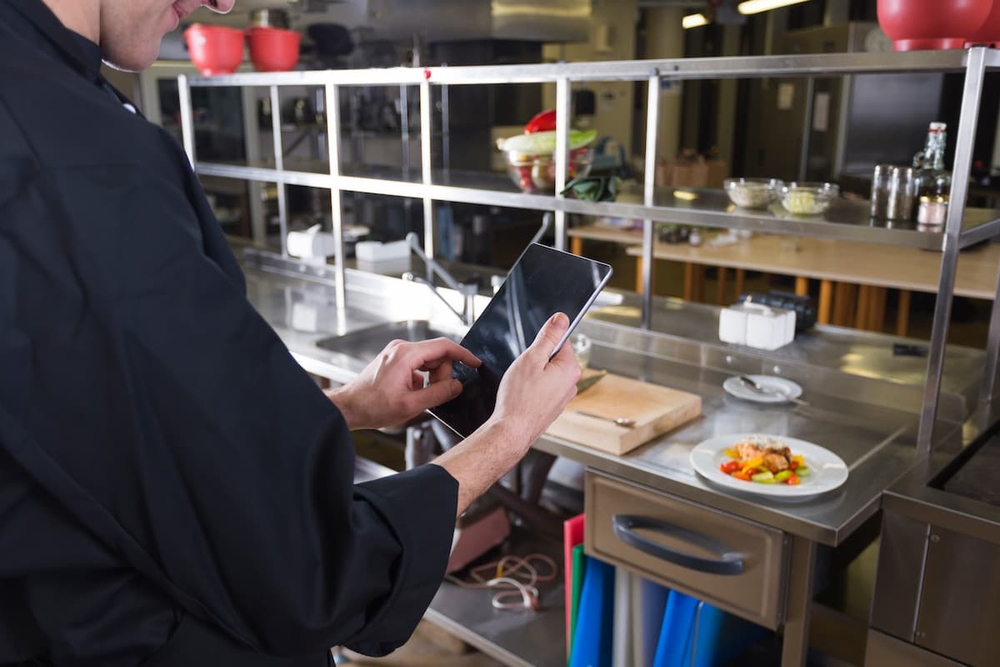Avoid these costly licensing mistakes when opening a kitchen in Boston
Table of Contents
CloudKitchens
How many tacos can be delivered from a 1000sqft restaurant?
The same amount as a 200sqft ghost kitchen.
Opening a kitchen in Boston-whether it’s a full-service restaurant, a ghost kitchen, or a home-based food business-offers tremendous opportunities in a city known for its vibrant culinary scene.
However, Boston’s regulatory landscape is complex, and even experienced operators can stumble over licensing requirements, costly delays, and compliance missteps.
Understanding the most common licensing mistakes to avoid when opening a kitchen in Boston is crucial for a smooth launch and long-term success. This guide explores the essential licenses and permits, common legal pitfalls, costs, and practical steps to ensure your kitchen opens on time and operates without regulatory headaches.
The licensing landscape in Boston: why it’s so challenging
Boston is one of the most regulated cities in the U.S. for food businesses. Opening a restaurant or commercial kitchen here can involve a lot of steps and documents. Each license or permit has its own process, timeline, and requirements, making it easy to overlook critical steps.
Key licenses and permits required
To legally operate a kitchen in Boston, you’ll typically need:
- Business License;
- Certificate of Occupancy;
- Food Facility Health Permit;
- Food Handler’s License (Food Service License);
- Seller’s Permit;
- Liquor License (if serving alcohol);
- Additional local permits (e.g., signage, fire safety, building permits)
Each of these licenses requires separate applications, documentation, inspections, and fees. Missing or mishandling any step can delay your opening or lead to fines and shutdowns.
Real-world consequences: What happens if you get licensing wrong?
Failing to secure the right licenses can result in:
- Delayed openings (sometimes by months)
- Fines and penalties
- Forced closure or loss of business
- Legal action
- Reputational damage
According to the CDC, about 60% of foodborne illness outbreaks in the U.S. are linked to improper food handling and hygiene violations, often due to lapses in compliance. Non-compliance is one of the leading causes of kitchen closures in Boston.
Read more: What are Boston Commercial Kitchen Requirements?
Licensing mistakes to avoid when opening a kitchen in Boston
Opening a kitchen in Boston is an exciting venture, but it’s also a process filled with regulatory hurdles and detailed requirements. Let’s check what you need to avoid:
1. Underestimating the complexity and timeline
Many new operators assume licensing is a quick, straightforward process. In reality, it can take months to secure all necessary permits, especially if you’re unfamiliar with Boston’s requirements or if your application is incomplete. Rushing or skipping steps can lead to costly delays.
Tip: Start the licensing process early, create a detailed checklist, and consult local experts or your legal advisor.
2. Failing to identify all required licenses
Boston can require multiple overlapping permits at the city, county, and state levels. Missing even one-such as a fire inspection or signage permit-can halt your opening. Requirements also vary based on your kitchen type (restaurant, ghost kitchen, catering, home-based).
Tip: Research both state and city requirements. For example, a food service license is required by the city, while a seller’s permit comes from the state.
Read more: Shared Vs. Private Kitchens: Making the right choice for your business
3. Incomplete or incorrect applications
Licensing applications often require detailed information about your business structure, kitchen layout, equipment, and safety protocols. Incomplete or inaccurate applications are a leading cause of delays and rejections.
Tip: Double-check all forms and supporting documents. If possible, have a legal or compliance expert review your applications.
4. Ignoring health and safety standards
Boston’s health department enforces strict sanitation, ventilation, and food safety standards. Non-compliance can lead to failed inspections, fines, or even closure. For example, commercial kitchens must have NSF-certified equipment, proper ventilation, and ADA accessibility.
Tip: Familiarize yourself with local health codes and schedule pre-inspections to identify and fix issues before official reviews.
Read more: Common health code violations in restaurants and how to fix them
5. Overlooking employee certification requirements
Every employee who prepares or serves food in Massachusetts must obtain a Food Handler’s License within 30 days of being hired. Managers often need a separate Food Protection Manager Certification.
Tip: Budget time and money for staff training and certification. The food handler’s test and license cost up to $15 per employee in Massachusetts.
6. Not budgeting for all licensing costs
Licensing fees in Boston can add up quickly. For example:
- Food service permit: $200 minimum for up to 100 seats, plus $1 per seat beyond that according to Boston.gov;
- Retail food with takeout: $300 flat fee;
- Liquor license: $250,000–$450,000 (secondary market);
- Business license: $75 to $7,000 or more, depending on location;
Tip: Factor all licensing and inspection fees into your startup budget to avoid cash flow surprises.
7. Misclassifying your business type
If you’re operating a home-based kitchen (cottage food business), you must comply with Massachusetts’ specific cottage food laws, which require a home inspection and permit from your local board of health. There are strict limits on what you can produce and sell.
Tip: Clearly define your business model and ensure you’re applying for the correct permits. Selling certain foods (like meat or refrigerated baked goods) from a home kitchen is prohibited.
Read more: How shared kitchens help reduce overhead costs for food businesses
8. Missing local zoning and building requirements
Before you can get a Certificate of Occupancy, your location must comply with zoning laws and pass building, fire, plumbing, and electrical inspections. Failing to secure proper zoning can result in denied permits or forced relocation.
Tip: Verify that your chosen location is zoned for food service and that any renovations meet code requirements.
9. Neglecting ongoing compliance and renewals
Licenses and permits often require annual renewal, ongoing inspections, and compliance with updated regulations. Lapses can result in fines or suspension of operations.
Tip: Set reminders for renewal deadlines and stay informed about regulatory changes.
10. DIY approach without professional help
Trying to navigate Boston’s licensing process alone can be overwhelming. Many successful operators work with consultants, legal advisors, or companies to streamline the process and avoid costly mistakes.
Tip: Invest in expert guidance to save time, reduce stress, and ensure compliance.
11. Don’t overlook the benefits of a ghost kitchen when starting your business
One common mistake entrepreneurs make when opening a kitchen in Boston is not considering a ghost kitchen as a strategic option to help launch and grow their business.
Many operators assume they must secure a traditional brick-and-mortar location, but ghost kitchens-also known as commercial kitchens or virtual kitchens-offer a streamlined, cost-effective alternative that can simplify the entire licensing and operational process.
Not considering a ghost kitchen is a missed opportunity. With CloudKitchens, for example, you gain a partner that understands Boston’s licensing landscape and provides the support you need to launch quickly, stay compliant, and grow your business efficiently.
Read more: How Ghost Kitchens can boost your restaurant’s profitability
Pro tips for a smooth licensing process
- Start early: Begin the licensing process as soon as you have a business plan and location.
- Stay organized: Keep a checklist of all required permits, deadlines, and supporting documents.
- Consult experts: Work with legal advisors, consultants, or companies specializing in restaurant launches.
- Budget realistically: Account for all licensing, inspection, and compliance costs.
- Plan for renewals: Set calendar reminders for annual renewals and ongoing inspections.
- Leverage technology: Use project management tools to track progress and deadlines.
How CloudKitchens can help you with your license in Boston
Navigating Boston’s complex licensing environment can be daunting, but CloudKitchens is here to help. With CloudKitchens, much of the heavy lifting around licensing is managed for you. Our team assists with the application process for required permits, ensuring your kitchen setup meets Boston’s regulatory standards, and provides ongoing compliance support.
Avoid the most common licensing mistakes and focus on what matters most: growing your food business in Boston’s thriving market!
Ready to open your kitchen in Boston? Contact CloudKitchens today to learn how we can simplify your licensing process and set you up for success.
DISCLAIMER: This information is provided for general informational purposes only and the content does not constitute an endorsement. CloudKitchens does not warrant the accuracy or completeness of any information, text, images/graphics, links, or other content contained within the blog content. We recommend that you consult with financial, legal, and business professionals for advice specific to your situation.
More insights & stories
There’s more where that came from.
Get in the know and check out our additional insights


